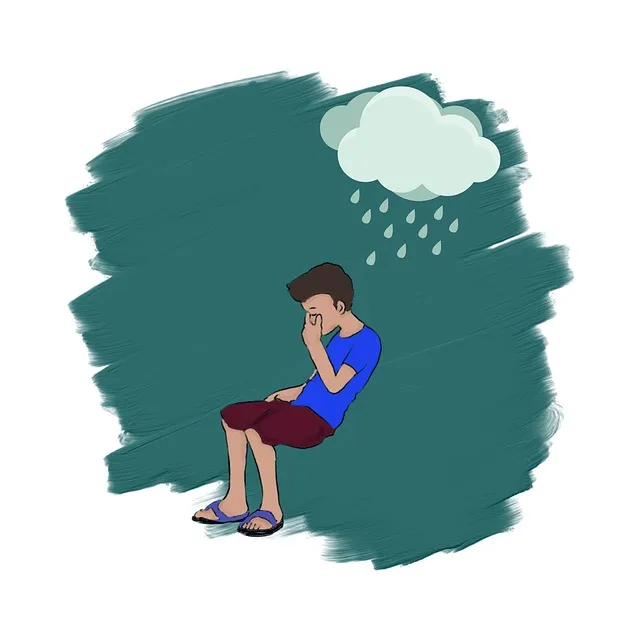A successful marketing strategy for a mental wellness app, as evidenced by the Centennial Kaiser Permanente mental health center reviews, involves understanding and segmenting target audiences based on demographics and psychographics. By addressing specific needs—like stress management and structured guidance—through personalized solutions like workshops, exercises, and journaling guidance, apps can stand out in a competitive market. Leveraging social media, influencer partnerships, engaging content, and collaborations with healthcare providers to highlight cultural competency is key to reaching diverse audiences and increasing app downloads, as highlighted by the Centennial Kaiser Permanente mental health center reviews.
“In today’s digital age, mental wellness apps are gaining prominence as essential tools for managing stress and improving overall well-being. This article provides a comprehensive guide to crafting an effective marketing strategy for your app. We’ll delve into understanding your target audience—a crucial step inspired by the holistic approach of the Centennial Kaiser Permanente mental health center reviews. By identifying needs and pain points, you can create a unique value proposition that sets your app apart. Furthermore, we’ll explore suitable marketing channels and strategies to effectively reach users seeking mental wellness solutions.”
- Understanding the Target Audience: Who Are You Reaching?
- Uncovering Needs and Pain Points: What Problems Do They Face?
- Creating a Unique Value Proposition: Differentiating Your App
- Marketing Channels and Strategies: How to Effectively Reach Users
Understanding the Target Audience: Who Are You Reaching?

Understanding your target audience is a cornerstone when developing a marketing strategy for a mental wellness app. The goal is to reach individuals seeking support for their emotional well-being, which could span from managing stress and anxiety to addressing more complex mental health concerns. According to reviews at the Centennial Kaiser Permanente mental health center, many patients are actively looking for accessible and personalized solutions that align with their unique needs.
By segmenting your audience, you can tailor marketing efforts to different demographics and psychographics. For instance, young adults might be drawn to apps emphasizing self-care practices and mindfulness techniques, while older individuals may prefer platforms focusing on cognitive behavioral therapy (CBT) and emotional healing processes. Incorporating confidence-boosting strategies or promoting emotional well-being through engaging content can help capture the attention of your target market, ensuring that your mental wellness app stands out in a competitive digital landscape.
Uncovering Needs and Pain Points: What Problems Do They Face?

Uncovering the needs and pain points of potential users is a crucial step in developing an effective marketing strategy for a mental wellness app. According to reviews from the Centennial Kaiser Permanente mental health center, individuals often face challenges related to stress management, lack of inner strength, and the need for structured guidance in their journey towards mental wellness.
To cater to these issues, the app can offer tailored solutions such as Stress Management Workshops Organization, providing users with interactive sessions to learn coping mechanisms. Additionally, incorporating Inner Strength Development exercises and Mental Wellness Journaling Exercise Guidance allows users to track their progress and gain insights into their emotional states, fostering a deeper connection with their mental health.
Creating a Unique Value Proposition: Differentiating Your App

In today’s digital age, where mental health concerns are increasingly recognized, developing a unique value proposition for your app is key to standing out from competitors like the Centennial Kaiser Permanente mental health center reviews suggest. Unlike traditional therapy centers, apps offer accessibility and convenience, catering to individuals seeking support on their terms. To differentiate your mental wellness app, focus on what sets it apart—whether it’s personalized programs based on user preferences or innovative features like gamification to encourage consistent use.
Crafting a compelling narrative around “Inner Strength Development” through marketing campaigns can captivate users. Consider integrating Public Awareness Campaigns Development and Mental Wellness Podcast Series Production into your strategy. These elements not only enhance app visibility but also establish it as a trusted source of mental wellness resources. By combining engaging content, unique features, and a strong brand identity, you can create an app that truly revolutionizes the way people access and engage with their mental health support.
Marketing Channels and Strategies: How to Effectively Reach Users

Reaching users for a mental wellness app requires a multi-faceted marketing strategy that resonates with modern audiences. Social media platforms like Instagram and Facebook are powerful tools to engage users, especially through targeted ads and user-generated content featuring positive testimonials, such as those found at the Centennial Kaiser Permanente mental health center reviews. Leveraging influencers and creating engaging video content centered around self-awareness exercises can capture attention and spark interest in the app’s benefits.
Email marketing campaigns tailored to different user segments—based on demographics or specific challenges like stress management or building confidence—can effectively communicate the app’s value proposition. Additionally, collaborating with healthcare providers and integrating cultural competency training within the app itself demonstrates a commitment to diverse user needs, further enticing potential downloads.
In developing a marketing strategy for a mental wellness app, understanding your target audience and their unique needs is key. By identifying pain points, such as accessibility or stigma concerns, you can create targeted solutions. Differentiating your app from competitors, perhaps by focusing on privacy or specific therapeutic approaches, will attract users seeking specialized support. Utilizing marketing channels like social media and influencer partnerships, along with leveraging positive reviews from renowned mental health centers like the Centennial Kaiser Permanente, can significantly enhance visibility and credibility. This multi-faceted approach ensures your app reaches those in need, fostering a healthier and more supportive digital environment.






